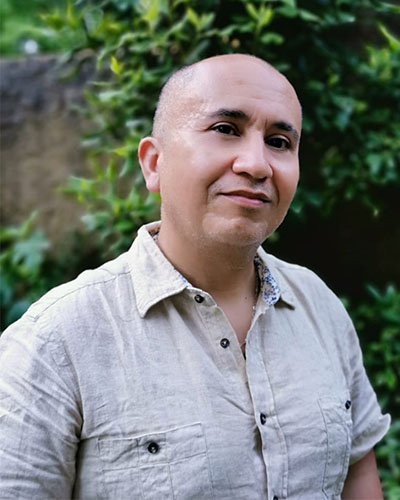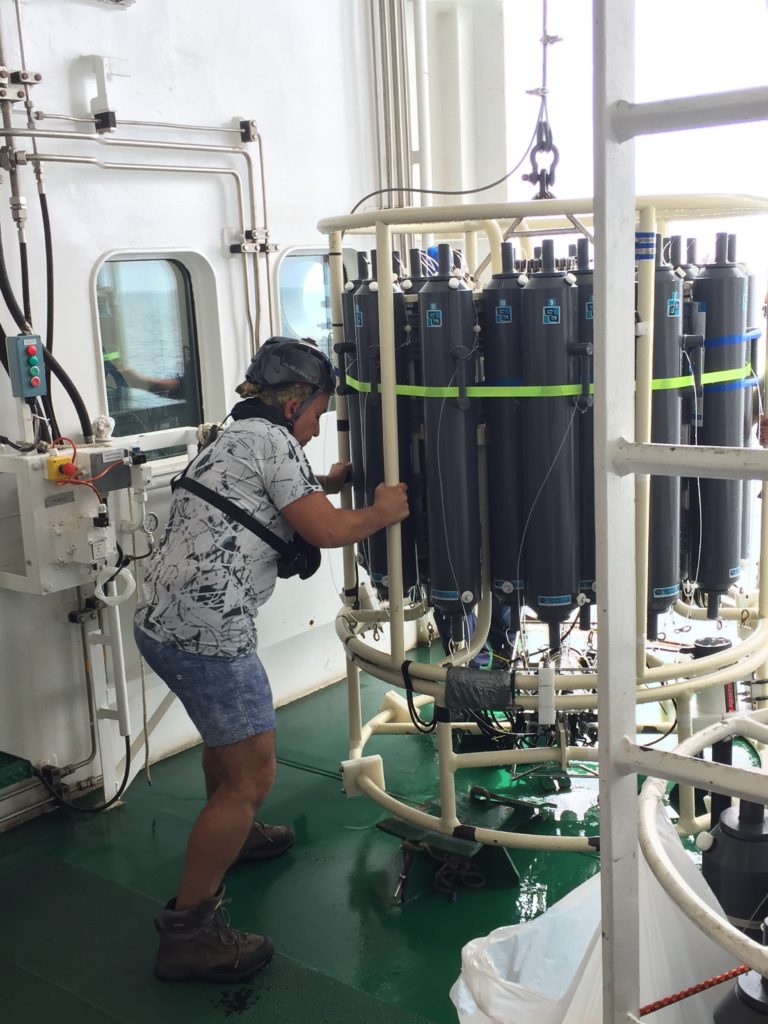
DR. CRISTIAN A. VARGAS
Professor - Faculty of Environmental Sciences, Universidad de Concepcion, Chile
- crvargas@udec.cl
- Google Scholar
Professor Cristian Vargas is a marine biologist and Doctor in Oceanography working at the Faculty of Environmental Sciences of the Universidad of Concepcion in Chile. Dr. Vargas is also a researcher at the EULA Chile Environmental Sciences Center, where he collaborates in technical assistance projects focused on evaluating environmental impacts on coastal ecosystems. Since 2009 he has led a number of Ocean Acidification-related scientific programs in Chile and has been involved in the formation of the Latin-American Ocean Acidification Network (LAOCA).
Between 2014 and 2020 he also served as the Director of the Center for the Study of Multiple-Drivers on Marine Socio-Ecological Systems (MUSELS). Cristian is strongly connected with the national- international community and serves as a member of different working groups for governmental agencies. Between 2016 and 2019 Cristian was member of the Executive Council of the Global Ocean Acidification Network (GOA-ON) a collaborative international network to detect and understand the drivers of ocean acidification in estuarine-coastal-open ocean environments, the resulting impacts on marine ecosystems, and to make the information available to optimize modeling studies. Between 2017 and 2020 he was also a member of the Scientific Steering Group of the International Ocean Carbon Coordination Project (IOCCP), an initiative co-sponsored by the Scientific Committee on Oceanic Research (SCOR) and the Intergovernmental Oceanographic Commission, IOC of UNESCO.
His research interests are focused in the area of carbon biogeochemical cycles and the impact of multiple stressors on marine populations. Cristian is also an Associate Researcher at the Millennium Institute of Oceanography (IMO) where he focuses mostly in the area of inorganic carbon chemistry in oxygen minimum zones (OMZ) and hadal environments. He has carried out pioneering studies that associate the observational carbonate system information with laboratory experiments on micro- and mesocosm set-ups under multiple-stressors (i.e. temperature, pH, oxygen and pollutants). His laboratory is completely equipped for high-quality measurements of the carbonate system, autonomous biogeochemical sensors, and a new laboratory-based experimental system for replicate both pCO2 and oxygen temporal variability. As such this lab constitutes a reference laboratory at the regional level. Cristian has published many papers in leading international journals. Recently, Cristian and his research group have been focused deeply on understanding the role of natural variability in marine ecosystems shaping the plastic responses of organisms upon future ocean conditions driven by global change.
Finally, Cristian is involved as referee in different high-rated international journals, including, Science Advances, Nature Climate Change, Global Change Biology, Scientific Reports among others. At present, is review editor for Frontiers in Marine Science and Frontiers in Physiology. Outside of the Lab, Cristian likes enjoy outdoor activities, such as mountaineering, he is also a music lover, as well as a guitar player enjoying the progressive heavy metal.

